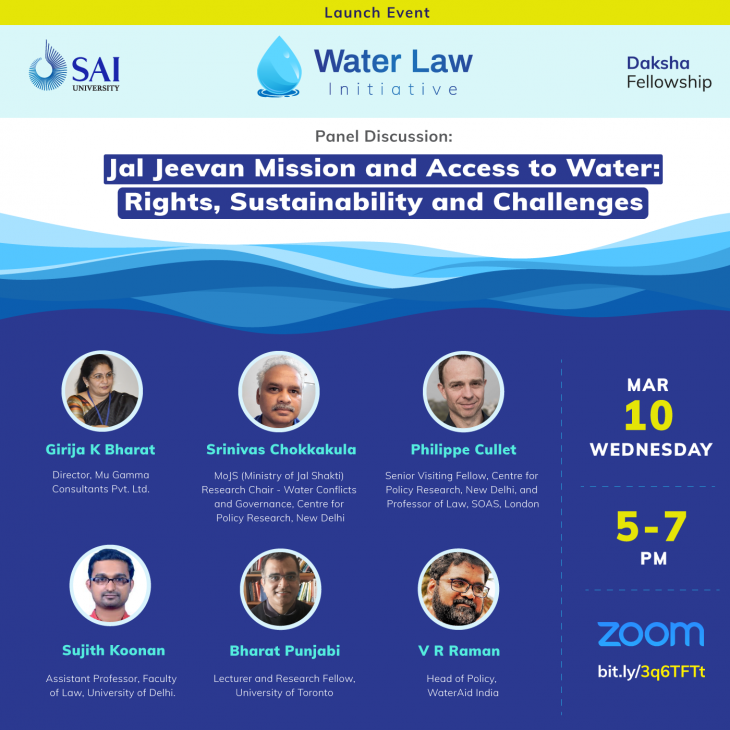In the coming years, South Asia is expected to witness several challenges and conflicts in water resource management, accentuated by population pressure, competing claims over water uses and climate change. Over the last few decades, several steps have been taken by international agencies, federal and state governments, local communities, and civil society groups to address water woes. Various treaties, legislations and policies have been introduced to address long-standing issues relating to water usage, sharing, and governance. Despite these, water crisis continues to grow and has triggered social and political movements across the sub-continent. Courts have often intervened to resolve these conflicts and on occasions, political entities have agreed to arrive at negotiated solutions.
Panel discussion
On March 10, 2021, the Water Law Initiative would be launched followed by a panel discussion on Jal Jeevan Mission and Access to Water : Rights, Sustainability and Challenges.
The Union Budget 2021 announced the launch of Jal Jeevan Mission (Urban) which aims to bring safe water to 2.86 crore urban households in India through tap connections. This is an extension of the Centre’s rural water supply project that was launched in 2019, with the aim to provide all rural households with tapped water.
While the ambitious programme is another step towards ensuring social justice, and realisation of socio-economic rights, there remains challenges in long term sustainable implementation of the project and unanswered questions about equity, access and inclusion. Availability of adequate potable drinking water remains at the centre of these challenges.
The purpose of the roundtable is to discuss these major challenges which pose as a hurdle to the Government’s promise to deliver safe piped water to all households by 2024 and to evaluate the scheme from the framework of “right to water” and the obligations that it poses. Further, we also propose to discuss perspectives, policies and practices from other countries in ensuring access to clean drinking water for all.
Register here for the roundtable: https://us02web.zoom.us/webinar/register/WN_zeSGtdrQTeSfRshzfdBvoQ
Click here to know more about the Water Law Initiative
Time: Mar 10, 2021 05:00 PM IST

